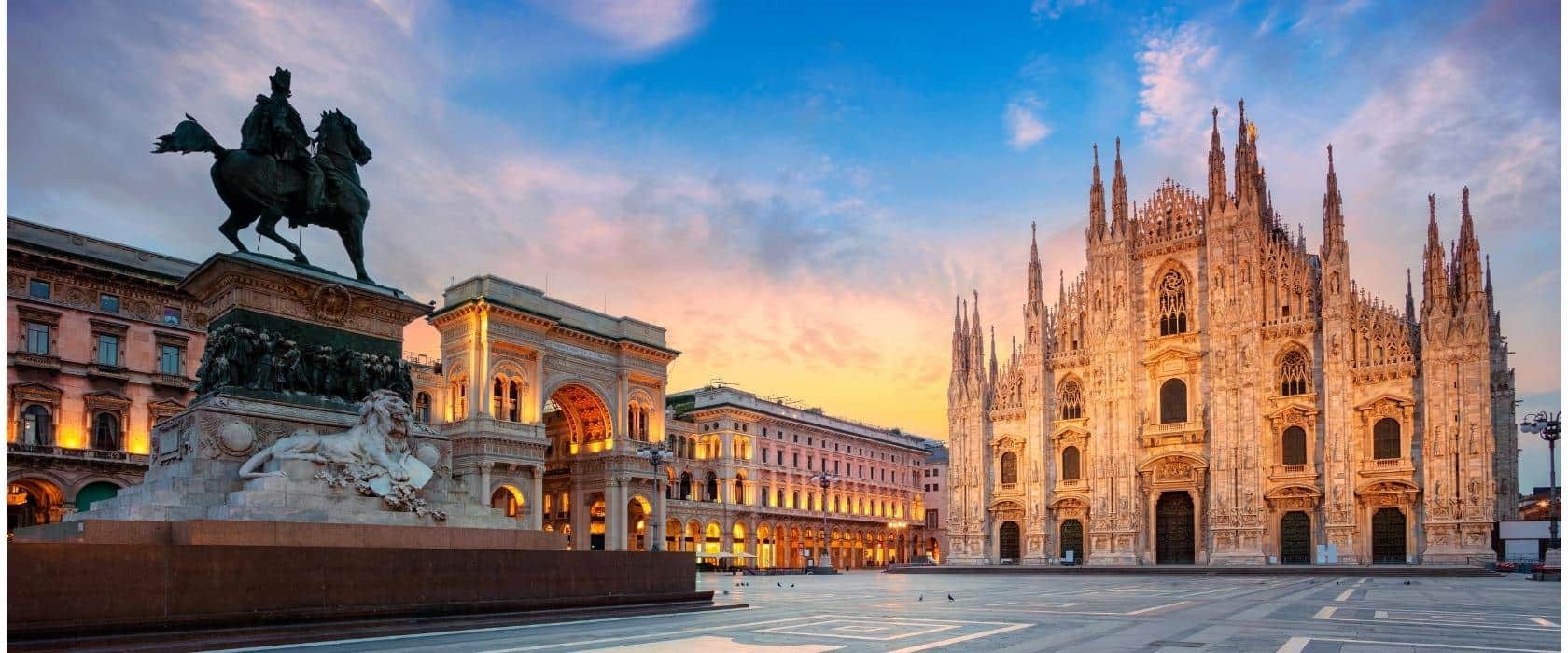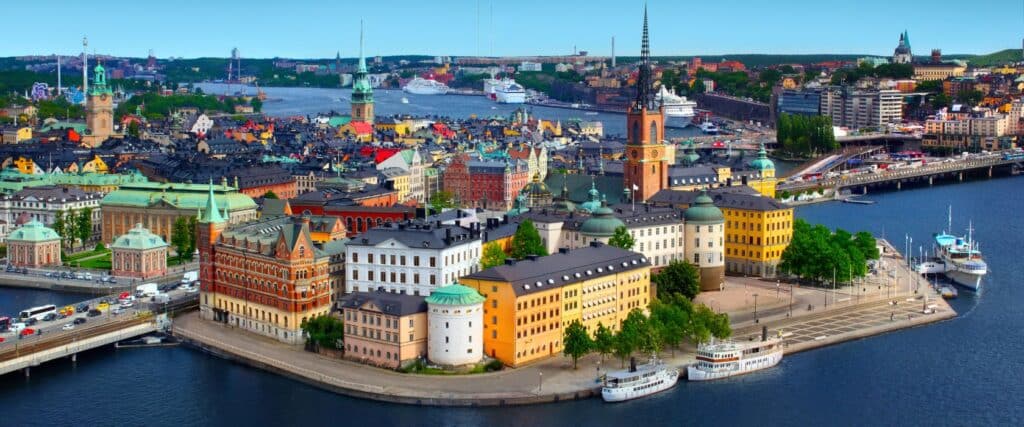Why More International Students Are Choosing Italy for Business and Beyond
Italy is ranked #14 in the world for education by U.S. News & World Report. It boasts a blend of academics, culture, and lifestyle perks that few countries can match.
From historic Florence to vibrant Milan, international students have a variety of options. Centuries-old universities like Bologna and Politecnico di Milano make it an authentic experience. Furthermore, Italy offers many master’s programs in English that cater to global students. However, not all programs are in English, so be sure to do your research.
In this guide, we’ll cover the best Italian business schools, student visas, tuition fees, and work opportunities in Italy.
Why Study in Italy?
Italy mixes world-class education with great culture, food, and European travel opportunities. As a result, it is a top choice for students from around the globe.
Historic Academic Excellence
Italy is home to some of the oldest universities in the world. The University of Bologna, for example, dates back to 1088. Many schools have beautiful campuses and long academic traditions.
Affordable Tuition & Living Costs
Public universities in Italy offer competitive tuition fees. Living costs are also lower than in countries like the U.S. or the U.K., especially outside of the main cities.
Gateway to Europe’s Job Market
Studying in Italy gives students access to the broader European job market through diverse post-study work options and Schengen mobility. Graduates often find roles in fashion, design, engineering, and business across Europe.
Culture, Food & Lifestyle
From Renaissance art to espresso culture, Italy offers a lifestyle rich in history and everyday pleasures. Students enjoy vibrant social scenes, famous cuisine, and easy travel to neighboring countries.
What are the Top 5 Universities for a Master’s Degree in Italy?
Italy offers a diverse mix of historic and innovative business schools that attract international students from around the world. These five stand out for their global programs, academic reputation, and post-graduation outcomes.
SDA Bocconi School of Management
Launched in 1971 as part of Bocconi University, SDA Bocconi sits sixth in the Financial Times European Business School Rankings. It is also Italy’s first institution to earn the prestigious Triple Crown Accreditation (AACSB, EQUIS, and AMBA). Fewer than one percent of business schools worldwide can boast accreditation from all three bodies.
With campuses in Rome and Mumbai, its main, modern campus is in the heart of Milan. As Italy’s financial capital, it offers excellent access to international networks and corporate partnerships. SDA Bocconi’s English-speaking specialized master’s programs span diverse fields such as:
- Luxury Management
- Fashion, Experience & Design Management
- FIFA (International Master in Management, Law and Humanities of Sport)
- International Healthcare Management, Economics, and Policy
- Sustainability Management
Bologna Business School
Bologna Business School at the University of Bologna is the oldest university in the world and remains a leader in academic excellence. It delivers master’s programs in English, covering subjects such as:
- Data Science and Business Analytics
- Digital Marketing and Communication
- Finance
- Human Resources and Organization
- Sustainability Transition Management
Outside the classroom, Bologna is famous for its red-tinged architecture and excellent cuisine. Furthermore, for a big city feel without the crowds, the University of Bologna is among the best business schools in Italy for international students.
POLIMI Graduate School of Management
The prestigious POLIMI Graduate School of Management is a triple-accredited business school based in the bustling economic powerhouse of Milan. It also became a B Corp in 2020 and continues to pioneer in sustainability and innovation through its seven labs.
The school offers master’s programs in areas as diverse as:
- Water Management
- Sport Design And Management
- Innovation And Entrepreneurship
- Sustainability Management And Corporate Social Responsibility
- Environmental Sustainability And Circular Economy
As a city, Milan is home to over 350,000 expats and a boisterous nightlife of aperitivo, bars, and clubs. Furthermore, Milan is renowned for its fashion, art, design, architecture, and more. There’s plenty to do and see in Milan after classes, making it an ideal study destination. From the north of Italy, it has handy transport links to the rest of Europe by train.
Sapienza University of Rome
Located in the capital of Italy, Sapienza University offers international students a vast range of master’s degrees in English. They offer master’s programs on topics such as Architecture and Design, Agri-food Sciences, Literature, Culture, Philosophy, History, Law and Legal sciences, and more. The vast variety makes it easy to find a specific niche. It has a 98% student placement rate and close ties to industry.
Nonetheless, networking isn’t always enough to secure your dream role. It is worth gaining professional fluency in Italian to find greater work opportunities in the country.
As Italy’s political and cultural capital, Rome offers an unparalleled backdrop for student life. Between classes, you can explore ancient ruins, world-class museums, and buzzing neighborhoods like Trastevere. With its mix of old-world charm and modern amenities, Rome is ideal for students seeking both academic depth and vibrant urban living.
ESCP Business School, Turin
Europe’s only truly pan-European business school, ESCP has six campuses in Turin, London, Paris, Madrid, Warsaw, and Berlin. ESCP holds both EQUIS and AACSB accreditation, reflecting its academic excellence and international recognition.
In 2024, ESCP’s Master in Management program ranked sixth in the world by the Financial Times. The school also offers a wide range of executive master’s programs, including specializations in digital business, alongside niche Master of Science programs tailored to specific career paths.
Tuition Fees and Cost of Living in Italy
Most of the top business schools in Italy are public institutions, which keeps tuition costs relatively low.
Tuition Fees for International Students
Public universities in Italy often charge between €500 and €4,000 per academic year. This makes a master’s degree in Italy a highly cost-effective investment for international students.
Cost of Living
The monthly cost of living for international students in Italy typically ranges from €900 to €1,300, depending on the city and lifestyle. Overall, rent tends to be the biggest expense, with notable differences between northern and southern cities in Italy.
Here’s what you can expect to pay each month:
- Rome or Milan: €500 to €650 for a room, plus utilities
- Bologna or Venice: €400 to €500 for a room; slightly less in Mestre (Venice mainland)
- Pisa or Naples: €350 to €500 for shared accommodation
Other typical monthly expenses include:
- Groceries: €250 to €350, depending on diet and shopping location
- Dining out: Pizza can cost between €10 to €15; breakfast can be as cheap as €3
- Public transport: ~€25/month with student discount
Italy’s national healthcare system is excellent. EU students can access it for free using their European Health Insurance Card (EHIC). Non-EU students pay around €150 per year for full coverage under the Servizio Sanitario Nazionale.
Scholarships and Financial Aid for International Students
Scholarships come from the Italian government, regional authorities, and individual universities.
Notable merit-based options include the University of Bologna’s scholarships, which cover full tuition. These scholarships require GRE scores and a strong academic record.
For need-based aid, you have to certify your financial status with documents like the ISEE parificato. If you are abroad while applying, you must register online with the Tax Assistance Centre, submit your request for the ISEEU parificato, and ensure you submit the correct, original documents. Consequently, if you are already in Italy, you will need to deliver the documents in person to one of the affiliated Tax Assistance Centres. You can make an appointment via the online form.
Additionally, many Italian universities allow students to apply for scholarships during the admissions process with no separate application required.
Application Process & Admission Requirements
To apply for a master’s degree in Italy, you’ll typically need the following documents:
Application deadlines usually fall between April and July, but always check your chosen university’s website for exact requirements and deadlines.
Student Visa and Work Opportunities in Italy
Studying & Working in Italy as a Non-EU Student
Non-EU students have to apply for a study visa through their local Italian embassy or consulate before arrival. Once in Italy, they need to apply for a residence permit within eight days, which is valid for the duration of their program. Required documents include proof of university admission, health insurance, housing, and financial resources. In the long run, the total cost for permits ranges from around €40 to €100, plus administrative fees.
Studying & Working in Italy as an EU Student
Students can work up to 20 hours per week, capped at 1,040 hours per year. After graduation, you can convert a study permit into a one-year job-seeking permit. EU citizens in mobility programs can study and work in Italy for up to 360 days without a new visa, though you must register at the Questura within 8 days.
Consequently, If you’re neither from the EU nor part of a mobility program, you must apply for a full Italian student visa and residence permit upon arrival, which includes a 20-hour-per-week, 1,040 hours per year work restriction.
Student Life in Italy
Italy’s vibrant social scenes offer plenty of ways to connect with peers and make new friends. In general, most university clubs and student associations organize parties, events, volunteer projects, and weekend trips. Of course, outside campus life, you can find bars, live music, and late-night cafés that add to the student experience.
Beyond academics, Italy is a gateway to cultural discovery and travel. Students can explore iconic cities like Milan, Florence, Venice, and Naples, or join university-organized excursions that dive into Italy’s rich history and natural beauty. Not to mention Italy’s ubiquitous cuisine, where eating pasta, pizza, gelato, and drinking espresso is an unmissable part of daily life.
Ready to Start Your Master’s Journey in Italy?
Who wouldn’t want a taste of La Dolce Vita while earning a degree? With historic Italian cities and excellent cuisine, the best business schools in Italy offer a balance of high-quality education and rich culture.
Don’t just think of Rome and Milan. Consider student-friendly gems like Bologna, Padua, or Pisa. Your next academic chapter begins here!
Get real insight into studying a master’s in Italy.






